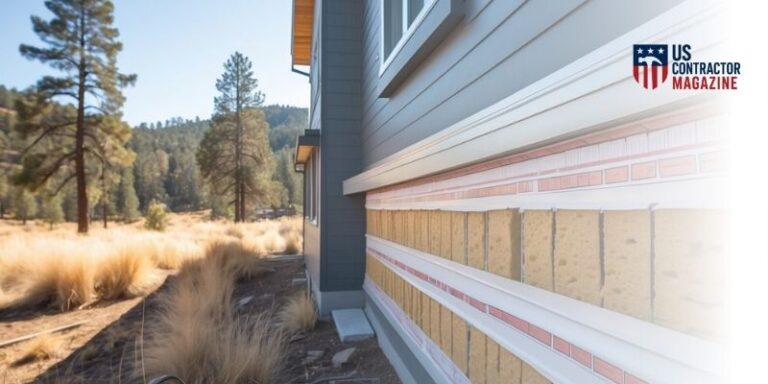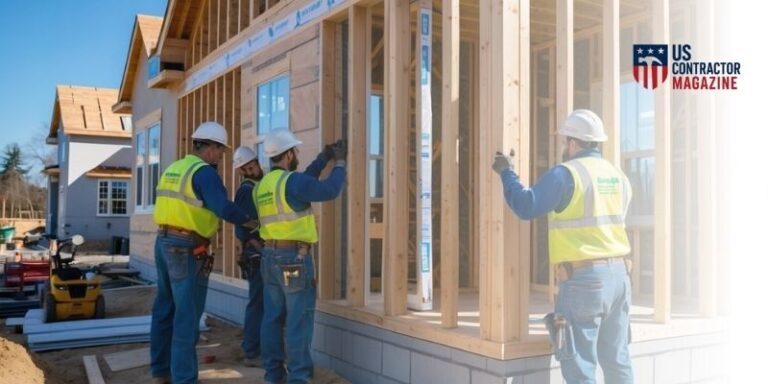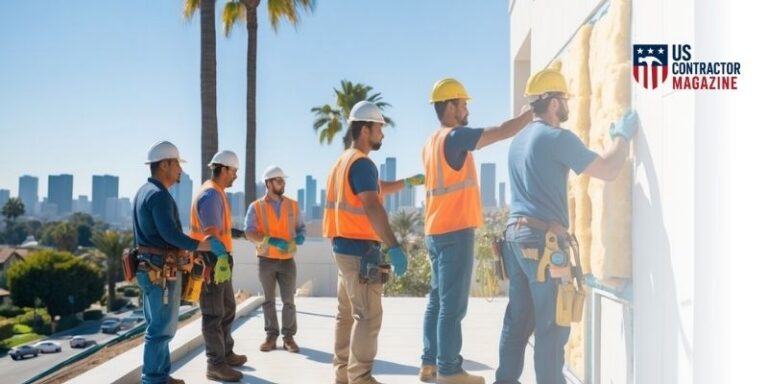
Air Tight Insulation of Glendale has introduced a new spray foam insulation technology designed to improve energy efficiency and home comfort. This advanced spray foam offers better air sealing by expanding and sticking closely to surfaces, reducing drafts and heat loss.
This technology provides one of the highest thermal resistance ratings, making it a smart choice for lowering utility costs and enhancing insulation performance. It is particularly effective for homes and businesses in Glendale looking to upgrade their insulation with a reliable and proven solution.
With a focus on quality and innovation, Air Tight Insulation of Glendale aims to deliver improved energy-saving results while maintaining professional service standards. Their team applies this technology to meet the specific needs of each property, ensuring a tailored and efficient approach.
Overview of Advanced Spray Foam Technology

Advanced spray foam technology improves insulation by creating stronger air barriers with better thermal and moisture control. It offers options suited to different needs, including types that differ in density and application methods. The technology also stands out compared to traditional insulation like fiberglass and blown-in materials. Its design helps both new commercial constructions and remodeled homes perform more efficiently.
Innovations in Spray Foam Insulation
Spray foam insulation has evolved to provide superior airtight sealing and moisture resistance. New formulas allow faster curing and easier application with less waste. Improvements in closed cell spray foam increase its density, which boosts its R-value to around 6.8 per inch, providing strong thermal resistance and structural support.
Technology now also permits hybrid insulation approaches, mixing spray foam with other materials like fiberglass to optimize performance in complex designs. These advances reduce heat loss and minimize pest intrusion, extending the lifespan of insulated spaces.
Types: Open Cell vs. Closed Cell Spray Foam
Open cell spray foam is less dense, with an R-value near 4.1 per inch. It expands more on application, filling irregular spaces well but is less moisture resistant. This type is often used for interior walls and places where soundproofing is important.
Closed cell spray foam is denser and acts as both insulation and a moisture barrier. It is more rigid, providing additional structural strength and airtight sealing. It is suited for exterior walls, roofs, and areas exposed to moisture and weather.
| Feature | Open Cell Foam | Closed Cell Foam |
|---|---|---|
| Density | Lower | Higher |
| R-value/inch | ~4.1 | ~6.8 |
| Moisture barrier | No | Yes |
| Structural support | No | Yes |
| Ideal Use | Interior, soundproofing | Exterior, moisture control |
How Spray Foam Compares to Fiberglass and Blown-In Insulation
Spray foam creates an airtight seal that fiberglass and blown-in insulation often cannot achieve. Fiberglass batts are heavier and can leave gaps where air leaks through. Blown-in insulation fills spaces better but may settle, reducing insulation effectiveness over time.
Spray foam requires less labor time since it is applied in one pass and adheres directly to surfaces. Cleanup is also simpler because excess foam can be trimmed before sealing. These factors often make spray foam more cost-effective in the long term due to improved energy savings.
Benefits for Commercial Buildings and Remodeled Homes
For commercial buildings, spray foam insulation improves energy efficiency by tightly sealing large spaces prone to air leaks. Its moisture resistance helps protect expensive equipment and structural materials from mold and corrosion.
In remodeled homes, spray foam adapts well to irregular cavities and hard-to-reach areas. It maintains indoor comfort by reducing drafts and controlling humidity. These benefits help older buildings meet modern energy codes without major construction changes.
Performance, Efficiency, and Application Process

Spray foam insulation improves home comfort by controlling air flow, temperature, and moisture. It offers strong protection against leaks and helps maintain a steady indoor climate. The process of applying the foam uses smart technology to ensure accuracy and consistency.
Energy Efficiency and Air Sealing Properties
Spray foam insulation creates a tight seal that blocks air leaks better than many other materials. This air sealing reduces drafts, which lowers heating and cooling costs.
It fills gaps and cracks, including hard-to-reach areas in walls and attics. This helps prevent energy loss by stopping outside air from entering and inside air from escaping.
By enhancing energy efficiency, the insulation reduces strain on HVAC systems, which can extend their lifespan. This makes spray foam a cost-effective choice for long-term energy savings.
Thermal Insulation and Moisture Protection
Spray foam acts as a strong thermal barrier by slowing heat transfer through walls and ceilings. This helps keep homes warmer in winter and cooler in summer.
Closed-cell spray foam provides excellent moisture protection. It resists water absorption, which lowers the risk of mold and mildew growth inside walls.
Effective moisture control also prevents damage to building materials, preserving the home’s structure. This makes spray foam especially useful in humid or rainy climates.
Application Process and Smart Technology
The application process uses modern equipment that mixes and sprays foam precisely. This ensures even coverage and prevents waste.
Smart technology monitors temperature and humidity during installation to optimize foam expansion. This controls the foam density and bonding to surfaces.
Professional installers tailor the spray foam thickness based on the space and insulation needs. This flexibility allows for effective coverage in walls, attics, and other areas.
Durability, Versatility, and Soundproofing
Spray foam is durable and maintains its shape without sagging or settling over time. This long-lasting performance reduces the need for replacements or repairs.
Its versatility allows use in many parts of a home, from attic insulation to basement walls. It adapts well to irregular shapes and tight spaces.
The foam also provides reliable soundproofing by absorbing and reducing noise transmission. This is especially beneficial for homes near busy roads or noisy neighborhoods.
| Key Attributes | Benefit |
|---|---|
| Durability | Long-lasting insulation |
| Versatility | Fits various spaces |
| Soundproofing | Reduces noise inside buildings |
- Air Tight Insulation of Glendale
- 1415 Gardena Ave, Glendale, CA 91204, United States
- +18188732738
- http://airtightinsulationca.com/glendale-ca
Frequently Asked Questions
Advanced spray foam technology offers stronger insulation, better air sealing, and moisture control. It works differently from traditional materials and plays a key role in improving energy efficiency. Installation requires safety measures, and the insulation lasts for many years.
What are the benefits of using advanced spray foam technology for insulation?
Spray foam creates an airtight seal that blocks air leaks and limits moisture buildup. It also reduces noise and keeps indoor temperatures steady. This type of insulation can fit into small or irregular spaces better than other materials.
How does spray foam insulation compare to traditional insulation methods?
Unlike fiberglass or cellulose, spray foam expands to fill gaps and hardens into a solid layer. This results in better air sealing and less chance for drafts. Traditional materials may allow more air movement and can degrade faster in some conditions.
What are the environmental impacts of spray foam insulation?
Spray foam can help lower energy use by reducing heating and cooling needs. Some types use blowing agents with low global warming potential. However, the production and installation processes involve chemicals that require careful handling.
Can spray foam insulation improve energy efficiency in homes and buildings?
Yes, spray foam forms a tight barrier that limits heat transfer and air leaks. This reduces the workload on heating and cooling systems, which lowers energy bills. Proper installation is critical to achieving these benefits.
What safety precautions should be taken when installing spray foam insulation?
Installers should wear protective gear to avoid skin and eye contact with chemicals. Good ventilation is needed during application to reduce fumes. Only trained professionals should handle the material.
How long does spray foam insulation last and what is its average lifespan?
Spray foam insulation generally lasts 20 to 30 years or more. It maintains its shape and effectiveness over time if not exposed to water damage or physical harm. Proper installation and maintenance support its longevity.




